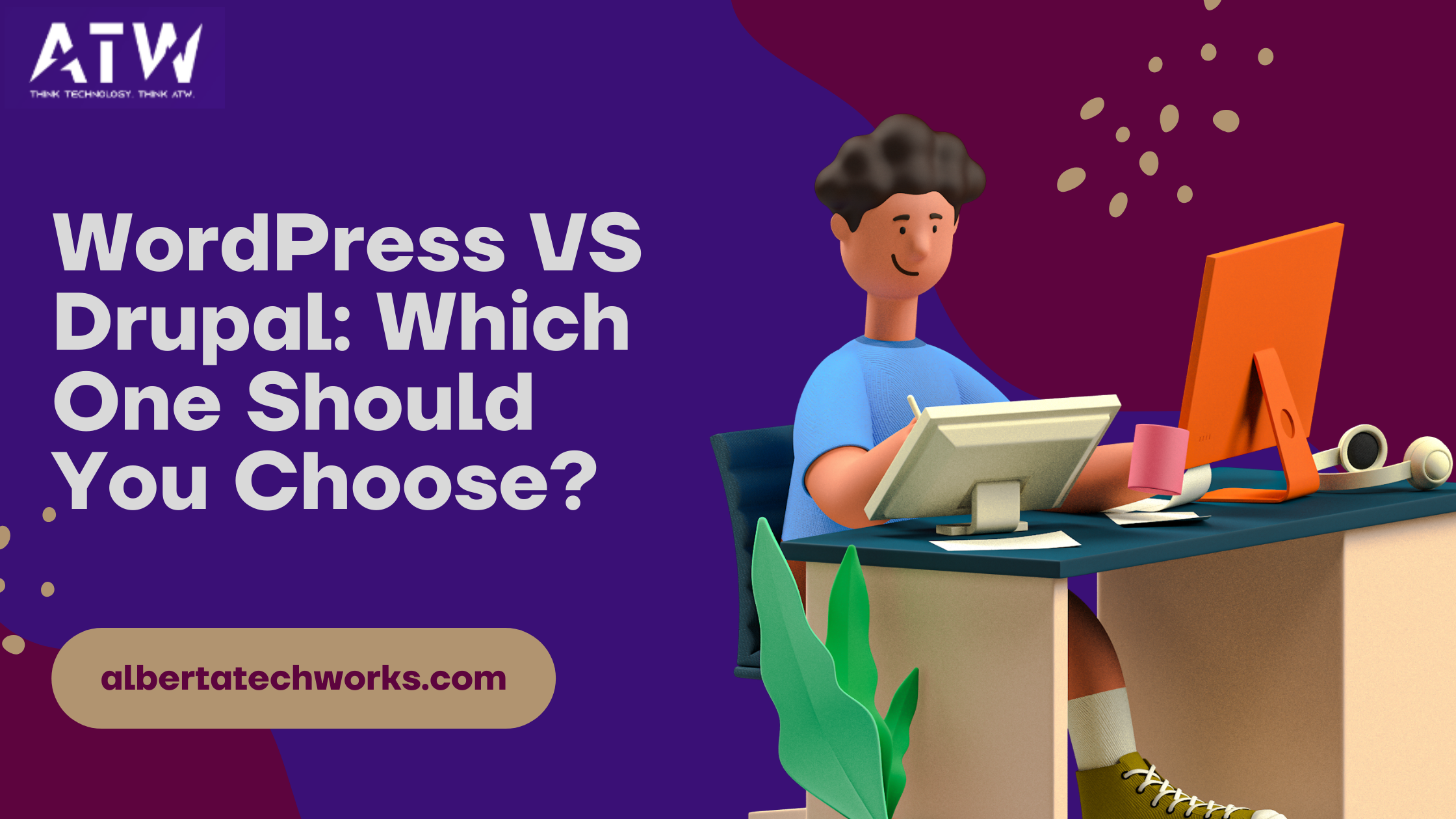There is no doubt that WordPress and Drupal are the most preferred CMSs (content management systems) by far. But our question here is which CMS you will prefer for your website. In this blog, we will compare both platforms so you can choose the right CMS for your website.
WordPress vs. Drupal 9
Before we get into the nitty-gritty details of both platforms, let’s find out a few things about both players.
WordPress – It was launched in 2003 as a blogging website, and now it empowers 43.3% of websites and controls approximately 65% of the CMS market.
Drupal – Drupal was launched in 2000 and powers 2.3% of all websites and controls 4.6% of the CMS market.
As per Google Trends, both of these platforms got popular in very less time. However, if you look at the market share growth, both of these CMS has grown over the year.
Both of these CMSs offer self-hosted solutions to manage the content. So let’s see how both of these stack up as CMSs.
Read More: How To Expose Modules In Drupal 9?
1. Dashboard: WordPress Vs. Drupal
When it comes to WordPress, its dashboard is easy to navigate. You can easily understand the navigation bars and always add new content and users within no more than one click via the top navigation. Also, if you face any issue while integrating a new application, you can easily look for the solutions in forums or WordPress documentation shared by a strong community of content creators.
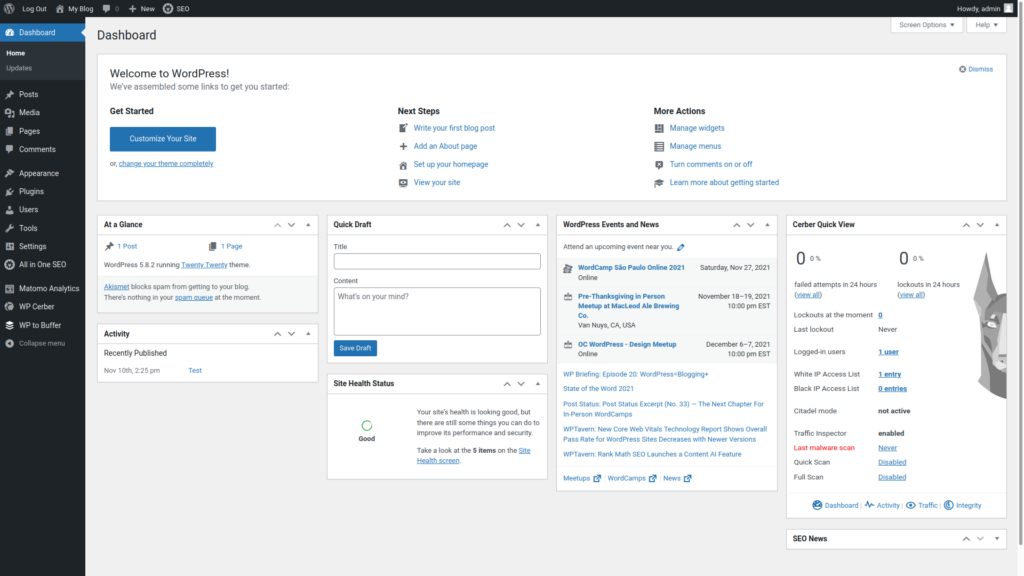
However, if you’re a fan of advanced development features, Drupal is the perfect option for you. The advanced features don’t make its dashboard challenging to use, but it can take a few extra clicks to navigate to the required section. Drupal also offers a shortcut menu where you can customize a second menu to optimize your workflow.
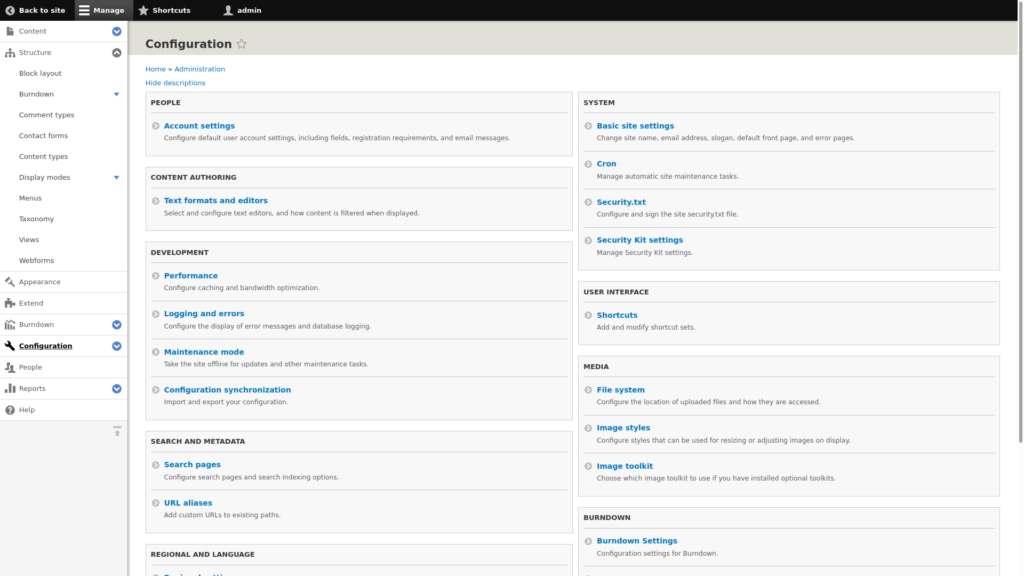
Read More: How To Make Multilingual Website Using Drupal 9?
2. Scalability: WordPress vs. Drupal
When it comes to scalability, you should always choose the CMS that can grow with you and support the functionality you see using in the future for your business growth. So, in this section, we will be comparing both platforms in terms of upgrades and integrations.
Upgrades
In WordPress, upgrades are a lot easier. You have an Updates page in the dashboard, and by visiting that page, you can view all the available updates for your core site, plugins, themes, and more. Just click on the Update button to complete the process. And if you want to configure automatic updates, you can do it in wp-config.php.
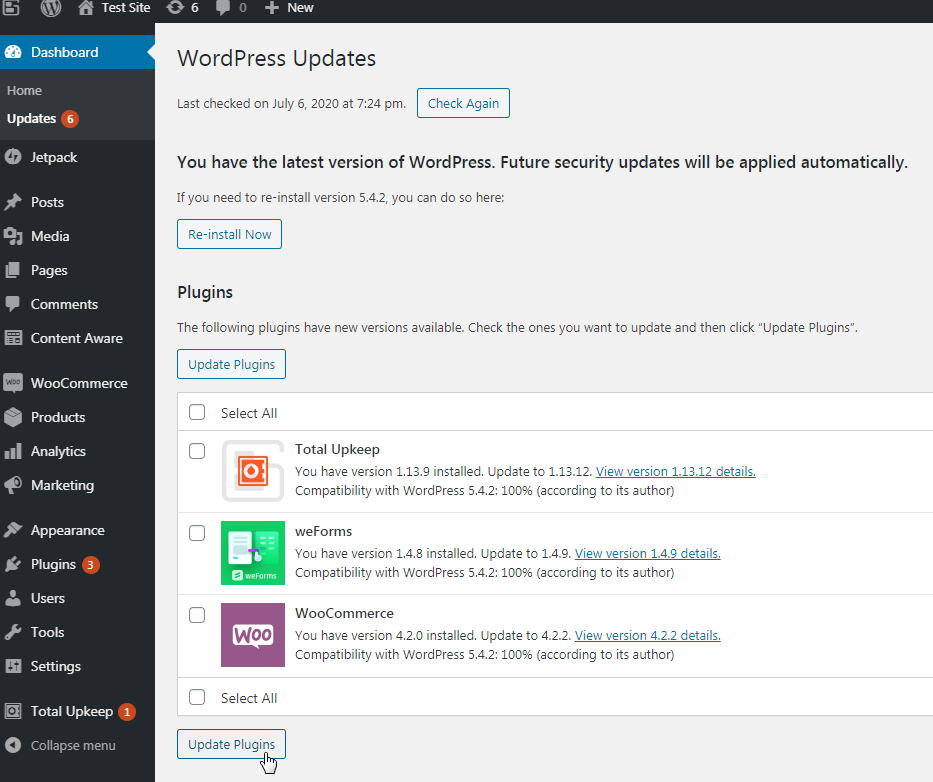
Upgrading your Drupal website is easy too. However, upgrading from one version of Drupal to another requires replacing the core files, and that too manually, unless you use Auto/Instant installer. Moreover, not every module is supported by all Drupal versions. So, whenever you’re planning to update/migrate your Drupal website, ensure that your required modules are supported in the next edition.
 Read More: How To Build Marketing Landing Pages With Drupal 9?
Read More: How To Build Marketing Landing Pages With Drupal 9?
Integrations
With time, your business might require you to integrate additional features to your website, like:
- CRM (customer relationship management) for customer service requests
- Analytics to customize your website/apps depending on traffic and user devices
- Project management framework for employee task management
- Online business store with a customer portal
All of these tasks require you to integrate additional plugins into your website. However, if you get too dependent on extra plugins for each feature while overlooking site optimization, your WordPress site will suffer quickly. To keep your website optimized and speedy, you must integrate these plugins into your WordPress website – caching plugin and code minification.
Interestingly, your Drupal website is less likely to get impacted by integrating a bulk of modules. This is due to the Drupal security advisory policy and back-end features already included in Drupal core.
Read More: What Should You Expect In Drupal 10?
3. Search Engine Optimization (SEO): WordPress Vs. Drupal
Both platforms have SEO plugins to build your online presence. You easily perform SEO improvements on both platforms. However, the WordPress SEO toolkit is packed with more features, while in the Drupal website, you require to install more modules to keep your website optimized and for better performance.
Website Speed Optimization
When it comes to website speed optimization, we are attaching images of GTmetrix site speed results for both platforms – WordPress 5.8.2 and Drupa 9.2.9 on a standard NVMe SSD cPanel VPS.
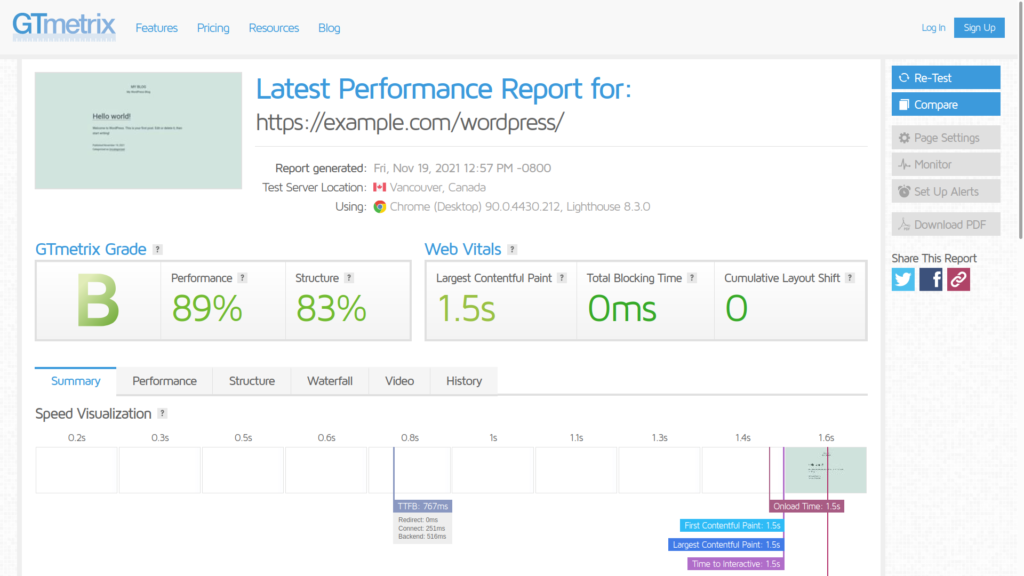
Read More: How To Audit Your Drupal Website?
Now, let’s integrate some necessary plugins into your WordPress and Drupal websites and find out whether they impact the overall performance of your website. On the WordPress website, we have added these plugins – All in One SEO, WP Accessibility, Akismet Anti-Spam, Jetpack, WP Cerber Security, Anti-spam & Malware Scan, and Total Upkeep.
And in the Drupal website, we have added these plugins – Metatag, Backup and Migrate, Civic Accessibility Toolbar, Schema.org Metatag, Security Kit, CKEditor Accessibility Auditor (HTML_CodeSniffer), and Field Token Value and Token (For Metatag).
Here are the GTmetric results after adding plugins to both websites on different platforms:
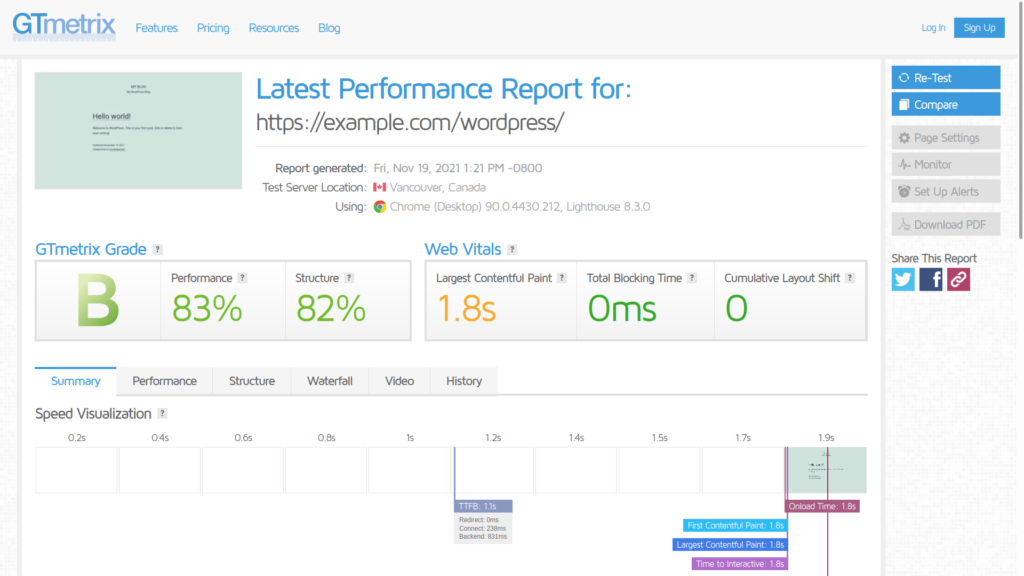
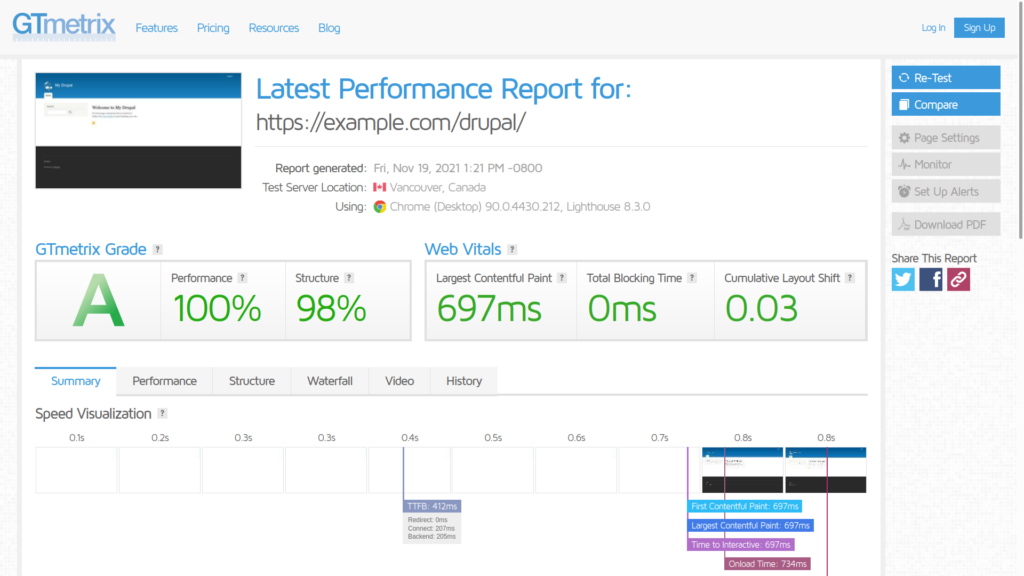
Read More: Environment Requirements For Drupal 9
Security and Quality Assurance
By now, you must have got the idea that WordPress focuses more on the easy integration of plugins and third-party apps; however, the focus of the Drupal community is to write development codes with strict code review. And both of these platforms take security and quality assurance on a serious note.
WordPress is the most common CMS today by new website owners, making it necessary for the community to focus on its security. As far as security is concerned, you must install WordPress security plugins to your website for base-level security. You should know that security plugins can take a lot of time to get installed. While choosing the security plugins, make sure to check their ratings and when the plugin was last updated. You can also check WPScan.com reports to get more information on the security vulnerabilities of WordPress plugins.
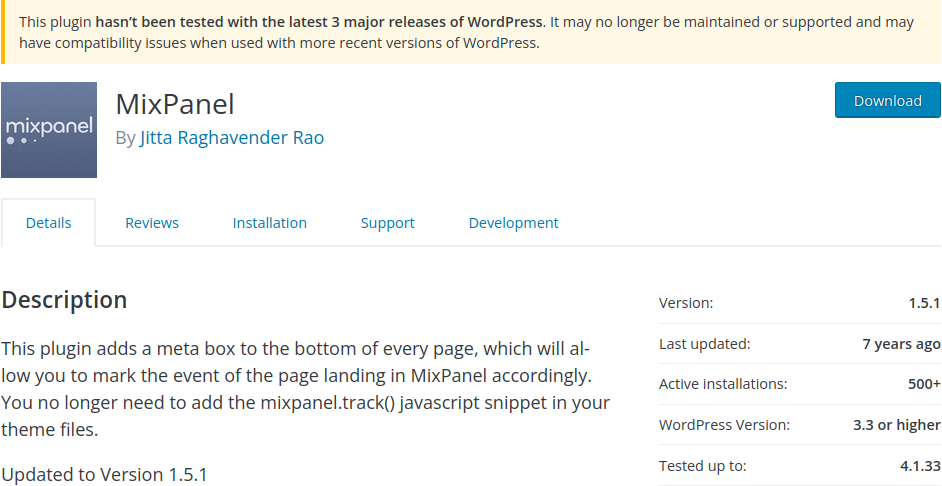
There is no doubt that WordPress is secure, but its dependability on too many plugins makes it more vulnerable to malicious attacks than Drupal.
“According to internet website security company Sucuri, WordPress accounts for 74% of hacked websites.”
The Drupal community has a dedicated team that ensures security as per security advisory policy. To ensure security, most security modules offer authentication methods (CAPTCHA) and security HTTP headers (Security Kit) that you can easily insert into a web server configuration file if desired. The key selling point of Drupal is its lockdown security, making it a popular CMS among government institutions and other security-conscious players. As per Sucuri analysis, Drupal only accounted for 2% of the hacked websites.
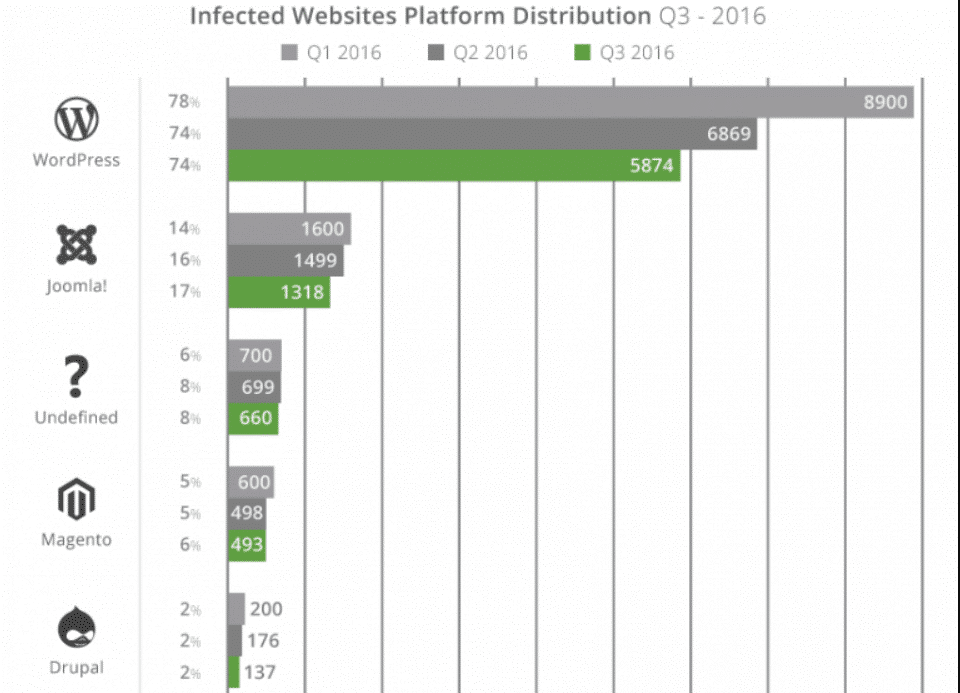
However, while upgrading any module to your Drupal website, ensure to read its description to find whether the module is supported by the Drupal community or not.
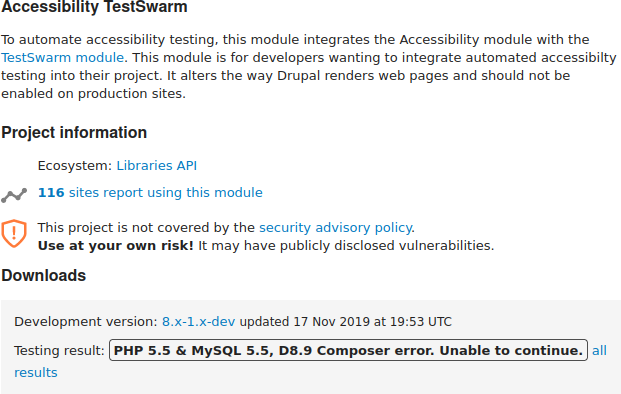
Read More: Drupal 9 Plugins You Must Have For Your Website
4. Additional Features
Over time, you might want to add additional features to keep up with the marketing trends. It might include:
- Multilingual support
- Integration with other web applications
- Web analytics
- Automated social media management through Hootsuite or Buffer
- Web accessibility compliance
In WordPress, you have more chances to find plugins for the features that you want to add to your website. This is because the number of WordPress websites is much more than Drupal websites. As the number is more, WordPress developers might have developed an official plugin to support that feature on the websites. However, if you aren’t able to find plugins, you can look for documentation that supports third-party plugins.
Drupal gets lesser attention than WordPress, and complex workarounds are time-consuming and custom coded. It means you’re going to need a developer to integrate additional features into your website.
Themes and Appearance
When it comes to WordPress themes, you can always find free themes as well as premium themes. Most business owners choose premium themes to stand out from the crowd. However, Drupal has far fewer themes available and will likely require some programming skills for in-depth tinkering.
Read More: Why Is Drupal Best For Your Site In 2022?
Final Thoughts: WordPress vs. Drupal
If you want to spend less time coding and integrating additional features to your website, WordPress is the best option for you. However, if you don’t mind putting in extra effort to get a powerful website that is more secure by default, stands out more, and focuses more on deep customization (without using plugins for everything), Drupal is for you.
